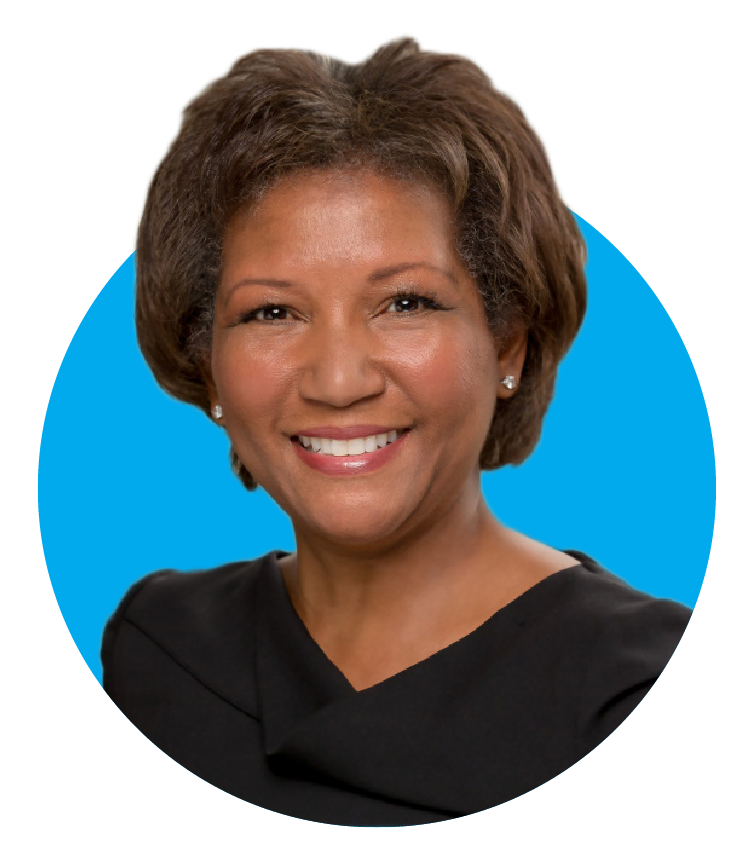Executive Vice President, Global Public Policy, ViacomCBS
Fast Facts

Education
- JD, Georgetown University
- BA, Broadcast Management, Howard University
Selected work history
- Executive Vice President, Global Public Policy, ViacomCBS, 2019-present
- Viacom
- Executive Vice President, Global Government Affairs, 2013-2019
- Executive Vice President, Government Relations, 2005-2013
- Vice President, Government Relations, 1997-2005
- Vice President, Government Affairs, Belo Corporation
- Vice President, Government Relations, National Association of Broadcasters
DeDe Lea is one of the most powerful women in the media business, leading on the issues of privacy, advertising, broadcast operations, and diversity. Lea started out in the telecommunications industry, pushing for the passage of the 1992 Cable Act and the 1996 Telecommunications Act. But it’s been in broadcast media and content where she’s really made her mark, having been at ViacomCBS for the past 23 years. Within her industry, she’s pushed for the Enhancing Broadcaster DIVERSITY Data Act, which requires cable operators and stations to consistently report ownership data to the Federal Communications Commission and for the FCC to make that data publicly available. She also lobbied for the Expanding Broadcast Opportunities Act of 2019 to reinstate an FCC program that offered tax incentives to companies selling their broadcast stations to minorities. This interview has been edited for length and clarity.
So you’ve been at Viacom for a number of years. What are the policy areas that you engage in now, and what are some things you really enjoy about it?
I bring in my media background and the law together. It was really the realization of what I love now, and what I always loved about the industry in general. Candidly, there’s never a dull moment. It’s always in the spotlight with members of Congress, policymakers—not only here in the U.S. but around the world in my portfolio. So the industry is just always something that policymakers are focused on.
What would you say is one of the biggest changes since you started working in the industry?
The biggest change is we just have more places to put our content. The fundamentals haven’t really changed to me. What’s changed are the number of platforms out there … and I think that’s been great. I love the fact that consumers are able to see our content and consume content in so many different places in so many different ways. I think that is a huge benefit.
Our industry is impacted in so many different ways. I don’t think I would like to be in a place where [you’ve got] single issues. In our industry, [we see] incoming papers on so many different issues in so many different places. It’s so interesting to look at how different governments address issues differently sometimes. I like being able to compare and try and predict what some governments [do] versus others, and also to be able to offer the government the benefit of saying, “Well … in the U.S. we handle it this way.” I’m talking to the Argentinian government, I can say, “Well, the UK government [does it this way].”
Are there a couple of key policy areas that are always on your radar?
Content protection, copyright protection.
How has the death of George Floyd and the Black Lives Matter protests affected your work at Viacom, or you personally?
I think a big part of the problem is that people don’t know and don’t appreciate all of the wonderful contributions that African Americans have made to this country. And the hope is that we can start educating people about this. So that’s one thing that my husband and I did, personally, at our kids’ school, just so that as kids are learning about American history, you need to start making sure that you’re talking about African American history as part of American history; it need not be separate, because we’re all Americans.
The beauty of working for ViacomCBS is that … I’ve always had the ability to talk about these issues. The company, I think, has certainly ramped up its efforts in the wake of George Floyd, but it was not new for us. … It’s just now it’s finally getting, I think, a heightened sense of awareness. … But for ViacomCBS, you know, we’ve been focusing on this.
[Take] 60 Minutes—a great, great show. One of their segments was on the Tulsa bombing. And what struck me in that conversation was African Americans who are from that part of Tulsa had not been taught about the bombings. … So that’s why education is so important. I mean, it’s really quite stunning the things that people don’t know, and then people don’t understand why you’re upset—well, because they don’t know. I think once people know, it’s like a light bulb goes off.
What do you think about the diversity in the government-affairs industry in Washington today? Do you feel like it’s a diverse industry? Do you feel like there’s more work to be done?
It’s certainly gotten better; I started in ‘90. But it’s very clearly not where it should be. It’s just so obvious. And it’s not a lack of talent. It’s a lack of will. And I think the companies that don’t recognize the need to have diverse staff are going to find themselves behind the eight ball at some point. You know, this is not rocket science. You’re not trying to find a cure for COVID, right? There’s plenty of people on the Hill, there are plenty of people in federal agencies, there’s plenty of people in law firms, there are plenty of people in this area. Companies could have a much more diverse lobbying shop.
This report is brought to you by our Vignette research team. Vignette, by National Journal, is a new database service, which now includes 10,000 in-depth profiles on policymakers and influencers at the federal, state, and local levels. Sign up to access profiles at njvignette.com.


